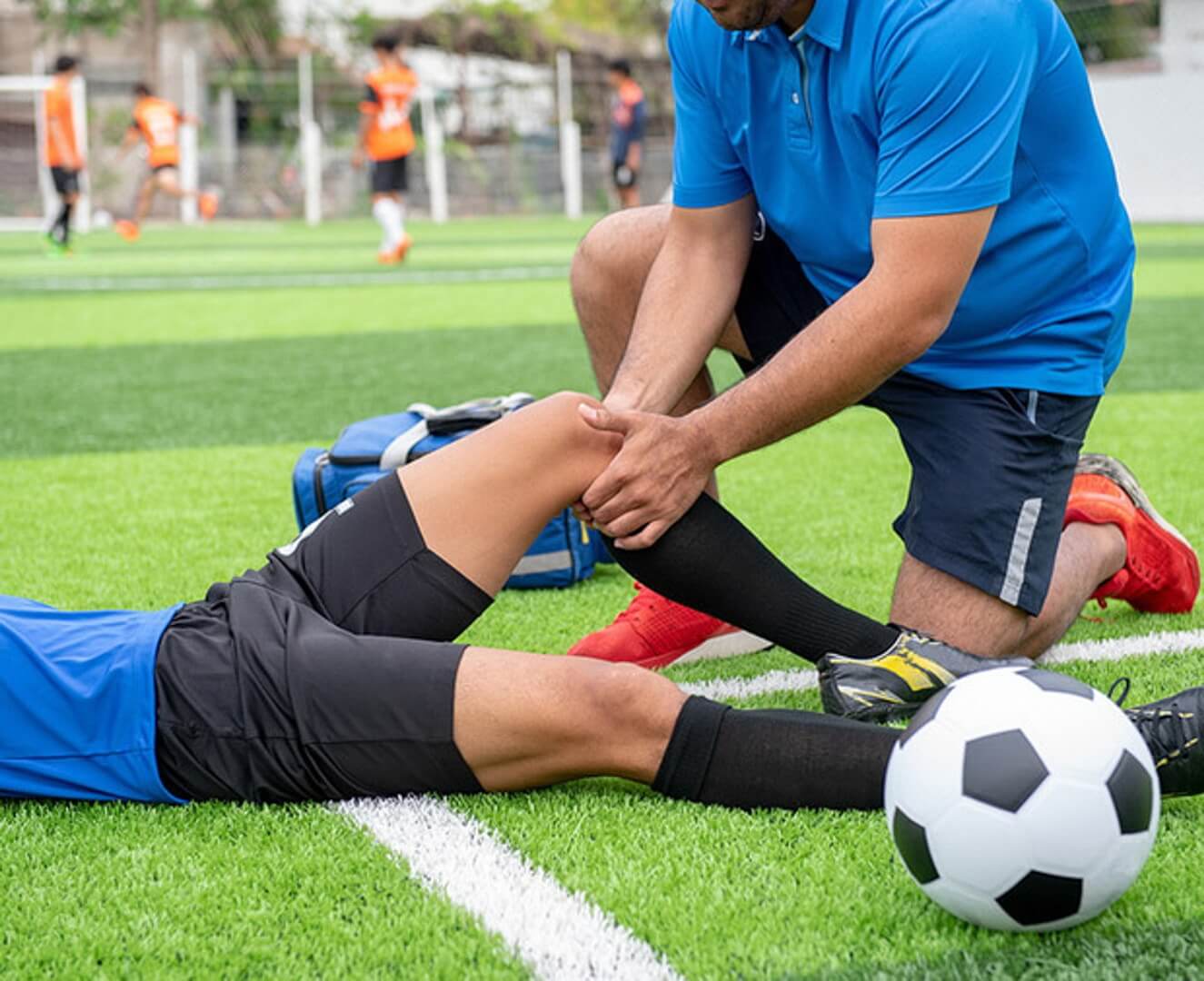
Sports-related injuries are very common. Whether it’s plantar fasciitis, ongoing back pain, or muscle strain, the chances are that you’ll experience sports injuries at some point if you participate in sports regularly.
Minor strains and other minor injuries can clear without a medical professional’s intervention. Enough rest (a few days) may be enough to help such minor injuries heal. However, if your condition isn’t improving, you may need rehabilitation. This is where a professional sports physiotherapist comes in.
A trained sports physiotherapist like CP Health can play a significant role in your recovery from a sports injury and in helping in the prevention of similar injuries. Some of the common sports injuries include:
1. Lower back pain
A larger part of the country’s population suffers back pain at some point in their life. Poor posture or technique when playing, repetitive movements and trauma are some of the common causes of mild or severe low back pain among athletes. While back pain is a highly complicated condition caused by environmental, mechanical, and psychological factors, an experienced physiotherapist can offer effective treatment options.
2. Plantar fasciitis
Simply put, the plantar fascia is the thick tissue that connects your front foot to the heel. It provides support to the arching section of your foot and serves as a shock absorber during physical activities. Excessive pressure on your foot can irritate plantar fascia or cause an injury, resulting in sharp or dull pain in the bottom of your foot and stiffness in your heel.
Plantar fasciitis pain is commonly seen in runners. It can be so severe that it hinders you from doing basic household tasks and other normal chores. An experienced physiotherapist can help you to carefully stretch the plantar fascia and the Achilles tendons as well. This can alleviate inflammation and plantar fasciitis pain. It can also restore overall function in your feet.
It is essential to mention that an exercise program to strengthen your leg muscles and lessen the overall load on your feet’ plantar fascia can help prevent various foot-related injuries from recurring. Your physiotherapist can help create a custom exercise program depending on the severity of your injuries.
3. Muscle strains
Generally, muscle strains are common in the ankle, groin, back, knees, and shoulders. These injuries occur when the tissues in your muscles are overly stretched or sometimes torn. Muscle strains can be very painful and sometimes accompanied by muscle spasms. Experienced physiotherapists understand the nature of muscle strains and can help you achieve full recovery within a short period.
4. Ligament sprains
The primary role of ligaments is to offer an element of passive movement between your body’s bones. It’s not surprising that ligament injuries or sprains are very common among people who participate in sports regularly. These injuries are very common in the ankle and knee areas, often resulting from landing awkwardly.
Ankle sprains occur when there’s tearing of ligaments connecting your bones in the ankle area. These ligaments stabilize your ankle joint, and when overstretched it can suffer a sprain. Most sports players are vulnerable to ankle sprains because of the excessive pressure placed on the joint during swift and repetitive movements such as jumping, turning, and frequent direction changes.
Ligament sprains can be prevented by staying active, as this will strengthen your joints to withstand potential sprains. If you or your colleague is prone to ankle sprains, it is essential to consult with a sports physiotherapist about the specific exercises that can strengthen your joints.
5. Tendinopathy
Tendinopathy is widely known as tendinitis. This type of sports injury to your tendon may seem to occur suddenly, but is often a result of repetitive pressure or overloading to your tendons. Some of the common tendon injuries include tennis elbow, rotator cuff injuries, golfer’s elbow, jumper’s knees, and Achilles tendinitis.
Note that Achilles is the large tendon located at the back of your ankle that extends from your heel to the calf. It connects your heel to your leg muscles and allows enough strength to push off when walking and running. Among the most common sports-related injuries, Achilles injury is among the most debilitating and is commonly caused by a rupturing or tearing, a sudden increase in intensity, or incorrect footwear.
6. Patellofemoral pain syndrome
Runner’s World warns that patellofemoral pain syndrome (runner’s knee) is among the most common overuse injuries among athletes. The primary causes of a runner’s knee include irritation of tissues lining your knee, torn or worn cartilage, dislocation, or trauma to your knee. Strained tendons are also a common cause of patellofemoral pain syndrome.
Suppose you sustain this type of sports injury. In that case, you will experience dull pain around your kneecap (patella), particularly where it meets the lower section of the femur (thigh bone), and a grinding or rubbing around your knee.
A trained sports physiotherapist can help determine whether how you are running may be contributing to the injuries. He or she can also help you make the right adjustments to minimize inflammation and pain. Various exercises that focus on strengthening your quad muscles and hip muscles play a critical role in reducing pain in your knees.
A trained sports physiotherapist can help
There are numerous types of sports injuries. These injuries may be minor, which clears within a short period. In other cases, severe injuries need specialized medical treatment and rehabilitation. Sure, there are different ways to prevent sports-related injuries. But there are instances where sports injuries may be unavoidable.
Consulting a trained sports physiotherapist could help you recover from sports injuries faster than you think. The physiotherapist can create a custom exercise and recovery plan by analyzing not just the current injury, but also your general lifestyle and gait. The treatment program should fit into your usual exercise regime to make sure that you get back to participating in your usual sporting activities.
